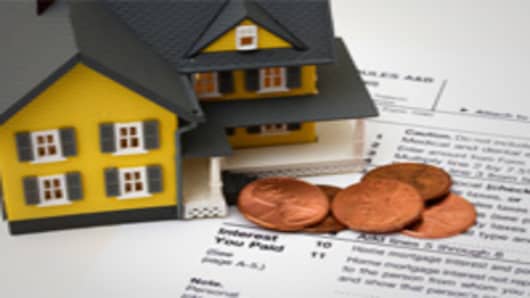Awareness for the homebuyers tax credit is high, but some prospective buyers are nevertheless confused as to whether they can qualify, especially now that the credit has been extended.
“Any time you talk about taxes it’s confusing,” Bob Meighan, vice president of tax preparation software firm TurboTax. “All these specific detailed rules can drive anyone crazy.”
The tax credit—which was designed to help stabilize the housing market—is on its third iteration. One of the major changes added Friday when President Barak Obama signed the bill, was to extend the deadline by five months. Homebuyers now need to have signed a home purchasing contract before May 1, 2010 and close on the home before July 1, 2010 to qualify.
The other major change is that certain existing homeowners can now qualify for the credit. Previously, the tax credit favored first-time homebuyers.
Although the real estate and housing industries were pushing to increase the amount of the tax credit, that didn’t happen.
“It’s not exactly what we wanted, but it is what the country could afford,” said Richard Smith, the president of Realogy, the parent company of several real estate companies including Century 21 Real Estate and Coldwell Banker. “It’s very beneficial to the industry and the economy.”
The tax credit has been popular with homebuyers, giving the real estate industry a much-needed boost. The Internal Revenue Service said that they processed over 1.5 million claims from individuals and families who have purchased homes between January 2009 and September 2009.
In addition, an estimated 300,000 jobs will be created by adding current homeowners into the mix, because they’re more likely to spend money on their new purchase, said Smith.
If you’re considering buying a home, here are a few tips from experts on common questions:
Amount of tax credit: First time homebuyers get 10 percent of the home value or $8,000, whichever is less. So homes under $80,000 will get back a 10 percent tax credit. For current homeowners, the amount is 10 percent of the home value or $6,500, whichever is less.
First-time or existing homebuyer?: To be considered a first-time homebuyer, you have to either buy a home for the first time or you cannot have owned a primary home within the past three years. If you own either a vacation home or rental property and do not live in it, you still qualify for the $8,000 credit too.
Current homeowners must have lived in their home for at least five years of the past eight in order to qualify for the $6,500 credit.
Qualifying home values: The value of the new home must be under $800,000 in order to qualify.
Military bonus: Members of the military who served more than 90 days outside of the United States have a one-year extension and have until 2011 to buy their home, says Meighan.
Income limitations: If you’re single, the amount of the tax credit you get begins to phase out if you earn over $125,000. Married couples see the amount of their tax credit begin to phase out if they both earn over $225,000.
Not just for homes: “There’s a lot of focus on the home…but an RV or motor home qualifies as well,” said Meighan, who is also a certified public accountant. Besides RVs and motor homes, he says that you can qualify even if you buy a houseboat, as long as they are used as primary residences.
Slow down: Real estate agents and sellers might put pressure on you to make a buy before the deadline, but Coet warns, “Don’t go and make a bad decision.”
The tax credit may be tempting, but making a purchase without doing enough research can cost you more.
(Editors Note: This story was updated after it was published in October to include information on the tax credit extension.)



